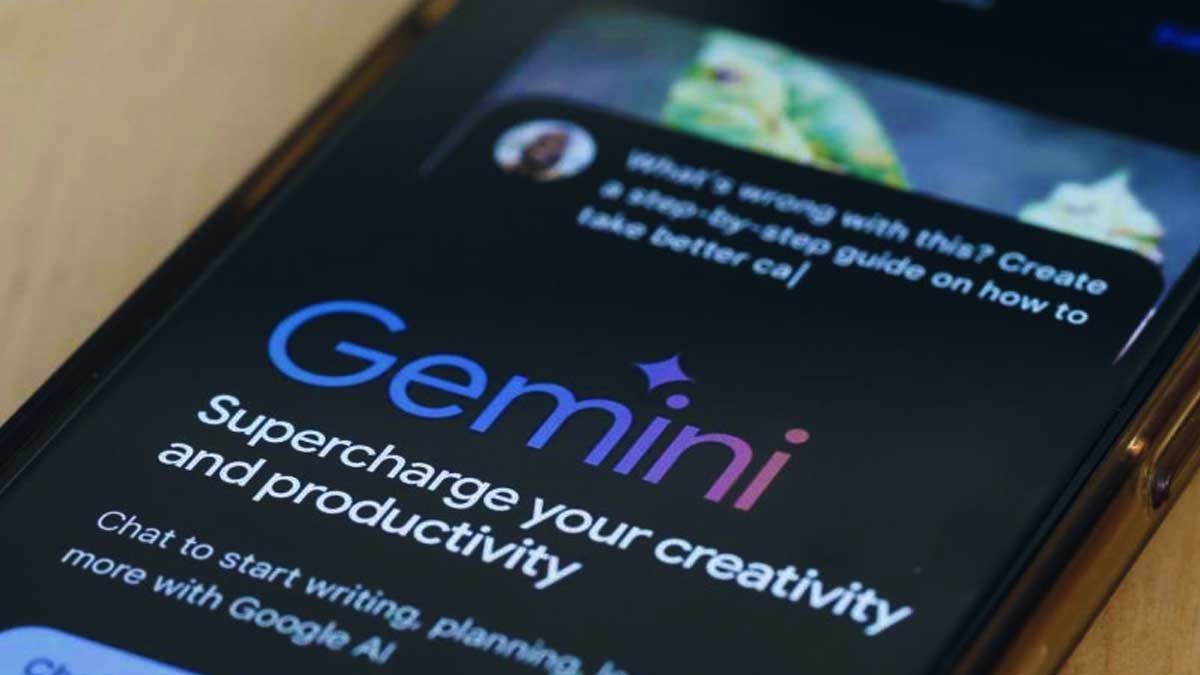- Home
- Billionaires
- Investing Newsletters
- 193CC 1000
- Article Layout 2
- Article Layout 3
- Article Layout 4
- Article Layout 5
- Article Layout 6
- Article Layout 7
- Article Layout 8
- Article Layout 9
- Article Layout 10
- Article Layout 11
- Article Layout 12
- Article Layout 13
- Article Layout 14
- Article Sidebar
- Post Format
- pages
- Archive Layouts
- Post Gallery
- Post Video Background
- Post Review
- Sponsored Post
- Leadership
- Business
- Money
- Small Business
- Innovation
- Shop
Recent Posts
Google Removes Disputed AI Ad from the Olympics

Google has removed its controversial “Dear Sydney” ad for the Gemini AI tool from Olympics broadcasts following widespread criticism. The ad faced backlash for being perceived as tone-deaf and for attempting to replace genuine human interaction with artificial intelligence. Despite Google’s initial defense that the ad tested positive before airing, it quickly drew negative reactions from viewers and critics.
The one-minute “Dear Sydney” ad, which remains available on Google’s YouTube channel with comments disabled, features a father discussing his young daughter’s admiration for American hurdler Sydney McLaughlin-Levrone. In the ad, the father refers to his daughter, who appears to be about 6 or 7 years old, as “the world’s No. 1 Sydney fan” and asks Gemini to help write a letter to the Olympian, expressing how inspiring she is to his daughter. The ad was intended to highlight a touching moment of a child’s admiration facilitated by AI.
Critics quickly condemned the ad, arguing that it suggested artificial intelligence could replace what might otherwise have been a heartfelt, personal experience—namely, a child writing a fan letter to her hero with her father’s help. Many described the ad as “disturbing” and “the worst, saddest, most bummer of a use of AI that I’ve ever heard,” claiming it undermined the emotional value of such gestures by substituting them with a technological solution.
Initially, Google defended the ad as “an authentic story celebrating Team USA,” but in response to the strong backlash, the company decided to pull it from the Olympic broadcast rotation. This decision was confirmed in a statement to AdAge, reflecting the company’s reaction to the negative feedback.
Alexandra Petri of The Washington Post captured the sentiment of many critics when she wrote, “This ad makes me want to throw a sledgehammer into the television every time I see it. I am not a big corporation, but I do not think that a good way of selling your product is to announce that it will suck all the joy out of being alive.”
The controversy surrounding this ad occurs amidst a broader debate about the role of artificial intelligence in everyday life. Concerns have been raised about AI potentially displacing meaningful work—evidenced by last year’s Hollywood strikes where writers and actors sought limits on AI use—while others view AI as a tool to enhance human productivity and performance, highlighting the ongoing tension between technological advancement and personal, emotional experiences.
Recent Posts
Categories
- 193cc Digital Assets2
- 5G1
- Aerospace & Defense46
- AI37
- Arts3
- Banking & Insurance11
- Big Data3
- Billionaires449
- Boats & Planes1
- Business328
- Careers13
- Cars & Bikes76
- CEO Network1
- CFO Network17
- CHRO Network1
- CIO Network1
- Cloud10
- CMO Network18
- Commercial Real Estate7
- Consultant1
- Consumer Tech180
- CxO1
- Cybersecurity68
- Dining1
- Diversity, Equity & Inclusion4
- Education7
- Energy8
- Enterprise Tech29
- Events11
- Fintech1
- Food & Drink2
- Franchises1
- Freelance1
- Future Of Work2
- Games141
- GIG1
- Healthcare78
- Hollywood & Entertainment186
- Houses1
- Innovation42
- Investing2
- Investing Newsletters4
- Leadership65
- Lifestyle11
- Manufacturing1
- Markets20
- Media193
- Mobile phone1
- Money13
- Personal Finance2
- Policy567
- Real Estate1
- Research6
- Retail1
- Retirement1
- Small Business1
- SportsMoney33
- Style & Beauty1
- Success Income1
- Taxes2
- Travel10
- Uncategorized8
- Vices1
- Watches & Jewelry2
- world's billionaires418
Related Articles
Netflix Secures 2027 and 2031 Women’s World Cup Rights
Netflix has clinched an exclusive streaming deal for the next two FIFA...
By 193cc Agency CouncilDecember 20, 2024Meta Fixes Facebook, Instagram, WhatsApp Outages
Meta, the parent company of Facebook, Instagram, and WhatsApp, faced significant outages...
By 193cc Agency CouncilDecember 12, 2024Roy Jones Jr. Confident He Can Beat Jake Paul, Issues Challenge
Boxing legend Roy Jones Jr. has made waves by declaring that he’s...
By 193cc Agency CouncilDecember 11, 2024Tsunami Warning Lifted After 7.0 Quake Off California Coast
A tsunami warning that affected large portions of northern California and Oregon,...
By 193cc Agency CouncilDecember 6, 2024















Leave a comment